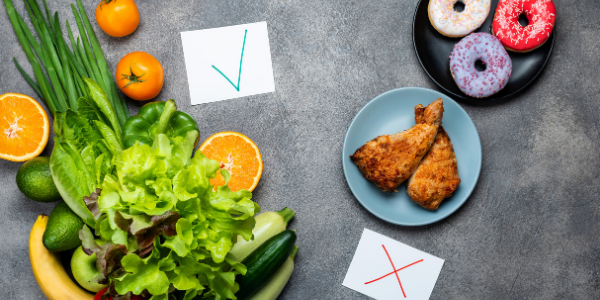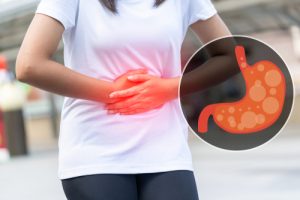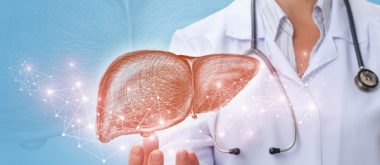Aging is a natural, unavoidable occurrence. After turning 50, your body is making numerous changes. You may notice changes you can see, such as weight fluctuations, as well as ones you cannot see, such as hormones. There are many things you can do to help yourself stay fit and healthy, including dietary changes. The first step is learning which foods to limit.
Calorie-Packed Foods
In your younger years, your body required a higher level of calories because your metabolism broke things down much more quickly. Cellular reproduction relied on the larger amounts of energy that resulted from caloric breakdown. As you age, your cells do not reproduce as rapidly and do not need as much energy to perform their intended tasks. Your metabolism slows down, which causes a dumping of unprocessed calories. These unprocessed calories can lead to weight gain.
Fatty Foods
Overly greasy foods are full of fat, salt, refined carbohydrates and empty calories. Many of the foods to limit include those that are high in fat and calorie content. In addition to weight gain, these foods can put you at risk for developing serious health conditions such as heart disease. Fast foods are the most common culprits, but fatty meats can also be included.
Bad Fruits and Vegetables
Can fruits and vegetables actually be harmful for aging adults? Yes, absolutely, according to Sun Health Communities. You may not know that some of the fruits and vegetables that used to be so healthy can actually cause problems after you turn 50. Eating grapefruit, for example, can be dangerous because it is known to interact with a wide range of medications used to treat high blood pressure and insomnia. Raw vegetables might have once been ideal choices for healthy snacks, but changes in your gastrointestinal tract might actually make eating raw vegetables difficult.
 Stomach Sensitivities
Stomach Sensitivities
In addition to other body changes, you might notice that your stomach has developed a sensitivity to certain foods that you once enjoyed freely. You may experience excess gas, bloating, acid reflux or even an intolerance to foods. Dairy-based, spicy or acidic foods could make the situation worse. Common foods to limit include cheeses and milks, most spicy foods, beans and raw vegetables.
Sugary Foods to Limit
You may be aware of the problems that can occur if you indulge in too much sugar-filled foods like candy and snack cakes. Eating a large amount of this junk food can cause much higher risks as you age. Your body’s production of insulin increases exponentially and often causes insulin resistance, which in turn leaves too much glucose in your body. This extra glucose is converted to fat and can not only contribute to weight gain, but can also increase the risk of developing Type 2 diabetes. When you think about the sugary foods you need to limit, also consider carbohydrate content. This same sugar conversion also occurs with carbohydrates because the body breaks them down into glucose. Breads and pastas should be eaten in moderation.
Salty Foods
Most people tend to use salt to flavor foods, but too much salt can be harmful. Once you pass the age of 50, an abundance of sodium can put your heart in danger. It is important to choose foods low in sodium content. Foods to limit include salad dressings and marinades, luncheon meats, many snack foods and overly processed foods. Choose foods that are labeled as low salt or sodium-free. For adding flavor, choose a salt substitute.
Undercooked Foods
There are many different foods that can be cooked to various levels of doneness. You may like your steak medium-rare or rare, your eggs over-easy or your sprouts more crunchy. It is important to make sure that your foods are cooked thoroughly to appropriate temperatures and doneness. Unfortunately, according to WebMD, many foods contain bacteria that your immune system could naturally battle in your younger years. Similar to many other parts of your body, your immune system response also slows. Additionally, if you already have underlying health conditions, you are at an even higher risk for developing bacterial issues from undercooked foods.
Caffeine and Alcohol
These two types of drinks can pose similar issues. Coffee and caffeinated drinks cause an increase in cortisol production. This cortisol is naturally higher during the morning hours to help the body wake up and be ready for the day and lower at night to help induce sleep. Consuming too much caffeine during the day interferes with your body’s natural circadian rhythm, often leading to difficulty sleeping at night. Alcohol can induce sleepiness at the wrong times, but it can also cause some dangerous interactions with medications you may be taking. It is important to discuss safe levels of caffeine and alcohol with your doctor.
Although it seems like getting older means that you cannot enjoy foods and that you have to keep with a boring diet, the truth is quite contrary to that. By limiting certain foods, you can feel confident knowing that you are taking care of yourself in the best way possible. There are still many foods that you can have, and limiting other foods does not mean that you cannot indulge occasionally. The changes you experience due to aging only need to make you more conscious of what you are eating and the potential issues that can occur.

 Stomach Sensitivities
Stomach Sensitivities



